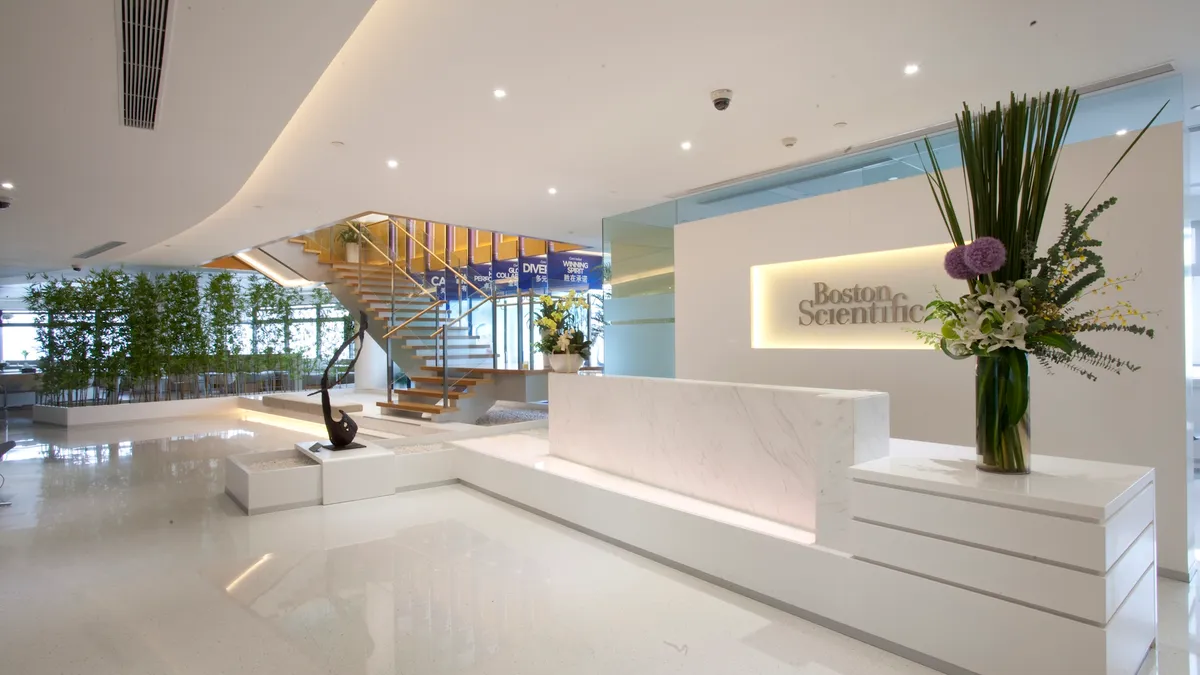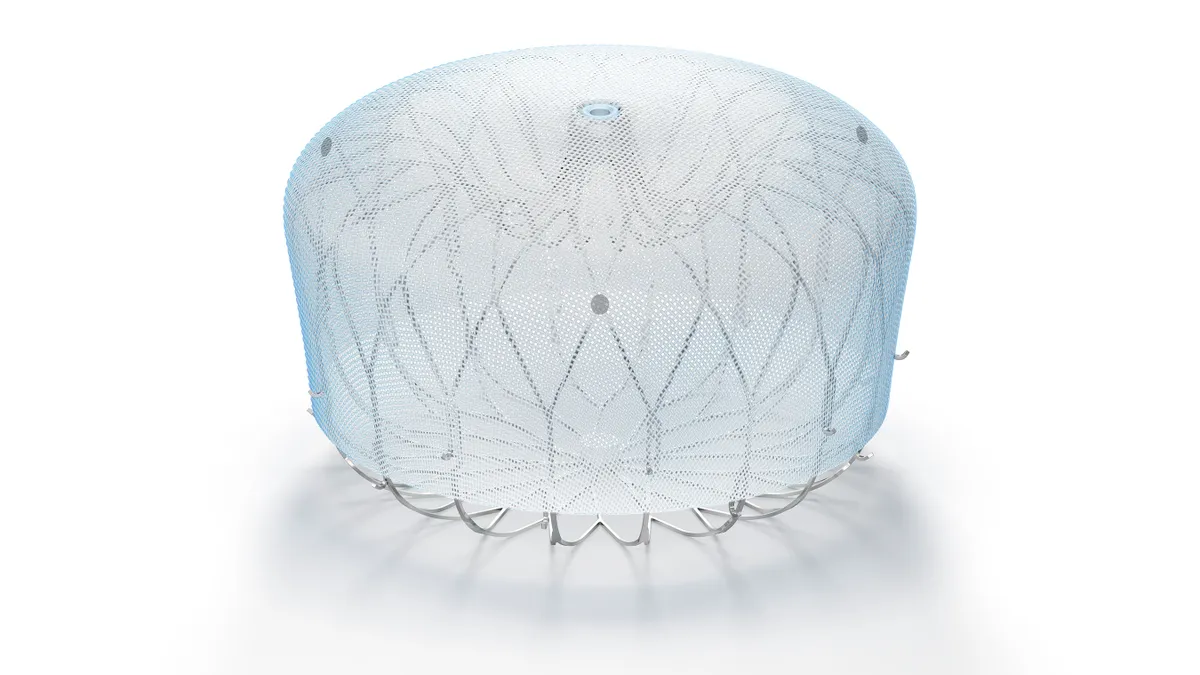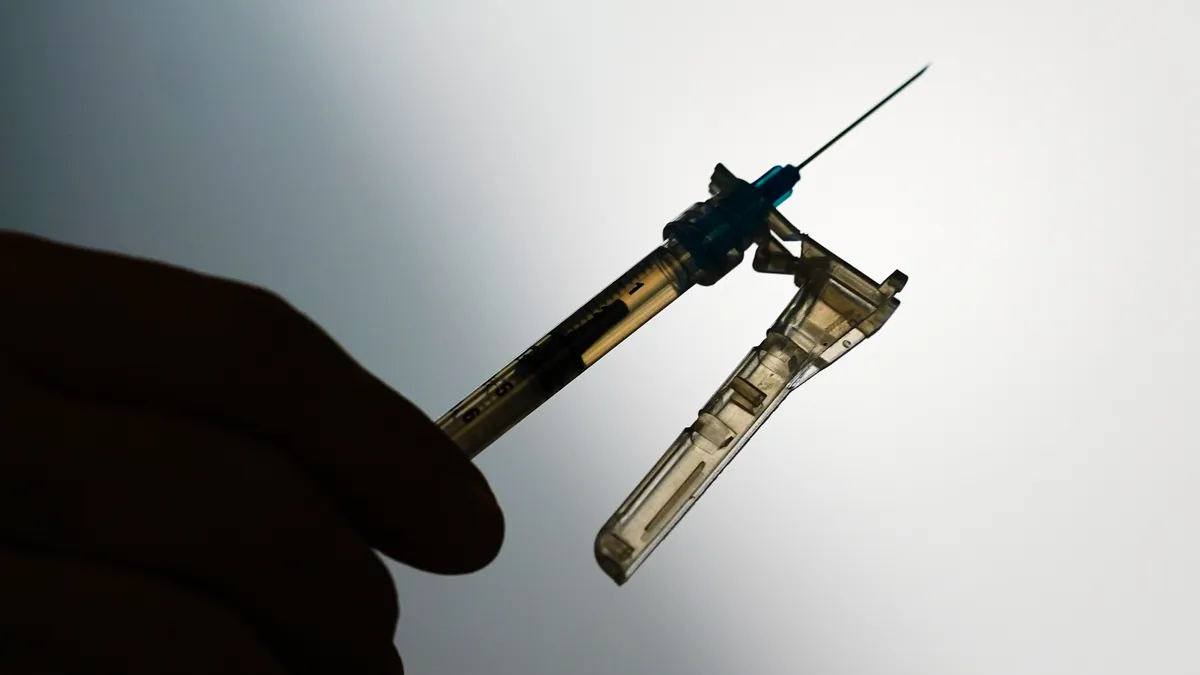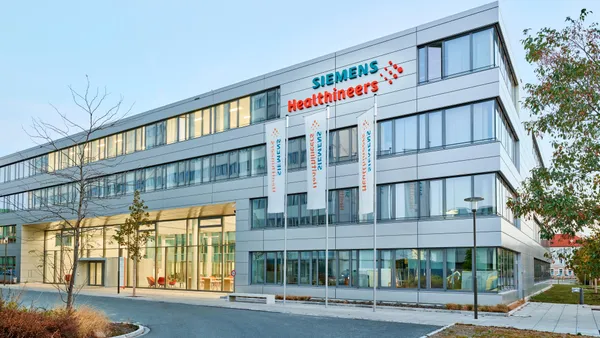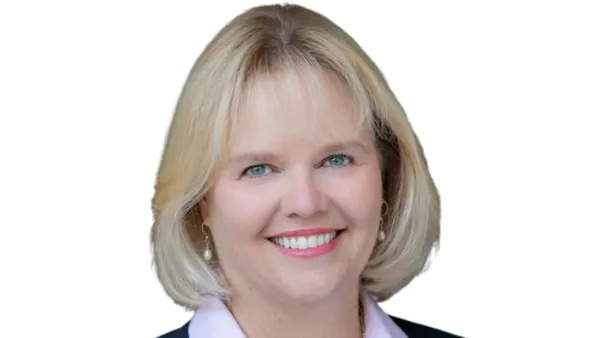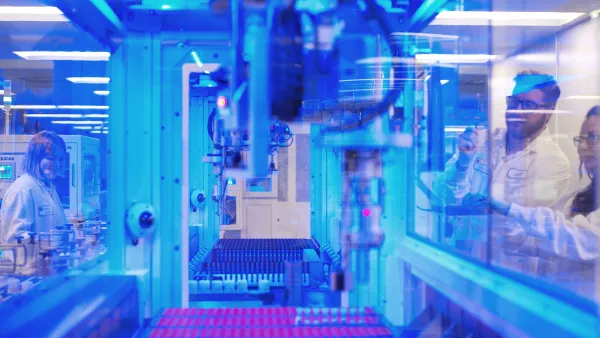Dive Brief:
- Boston Scientific laid out plans for 75 new product launches by 2022 at an investor event Wednesday, highlighting strategies to grow more competitive in the structural heart market, expand the range of cancers its interventional therapies address and increase sales in China.
- The forecast compound annual growth rate of 6% to 9% between 2020 and 2022 does not include potential benefit from the yet-to-be-finalized acquisition of British interventional oncology and venous disease device maker BTG, which the company said will provide opportunities to expand into other cancers.
- The company's plan to capitalize on concerns over endoscope infections will likely come to fruition before the end of 2019, with Boston Scientific reporting it filed its 510(k) submission for a single-use duodenoscope April 29. "Management believes that ~50% of the duodenoscope market could convert to single-use scopes within five years," Needham analyst Mike Matson wrote Thursday.
Dive Insight:
Boston Scientific executives appeared to shake off a disappointing first quarter and touted big plans to expand in high-growth markets like structural heart and electrophysiology.
The growth rate estimates given Wednesday top targets presented at the 2017 investor day, which predicted a high of 8% between 2018 and 2020, Matson said. CEO Mike Mahoney called the current regulatory environment "more dynamic" than it was two years ago.
The planned acquisition of BTG, announced more than seven months ago for a price of about $4.2 billion, is still on track to close mid year, executives said. In addition to scaling the British oncology device maker's geographic reach (about 90% of BTG's current sales are U.S.), Boston hopes to expand applications of its oncology products like its TheraSphere radiotherapy and ICEfx cryoablation technology beyond liver and kidney cancers into lung cancer applications.
BTG's interventional medicine business could add more than $200 million to Boston's revenues in 2019 and over $600 million by 2022, Jefferies analysts predicted in a note to investors Wednesday.
Boston's interventional cardiology unit has historically relied on its stents and complex percutaneous coronary interventions businesses, with structural heart accounting for just 10% of the IC revenue mix in 2016. That figure jumped to 26% in 2019, and by 2022, Boston Scientific sees structural heart revenues outselling other categories, potentially accounting for 40% of the overall interventional heart unit earnings.
Following the April U.S. approval of its Lotus Edge valve, executives said the device will transition to a full launch in 2020. Jefferies analysts said while Edwards Lifesciences and Medtronic will continue to dominate TAVR, they predict Lotus will gain 12% of the market through 2022, per the Wednesday note to investors.
Despite being late to the U.S. TAVR market, Boston Scientific suggested strong market penetration of its cerebral protection device Sentinel, designed to guard against stroke during TAVR procedures, may help it gain traction with Lotus. In centers using the Sentinel device, executives estimate it is utilized in 65% of procedures, accounting for 15% of all U.S. TAVR surgeries.
Boston is also seeking to gain ground in mitral valve repair, which it sees as a $3 billion opportunity come 2025. With the space also being targeted by Edwards and Abbott, Boston said in 2020 it plans to initiate a U.S. early feasibility of technology from last year's $325 million acquisition of Millipede.
The company's existing position is more secure in left atrial appendage closure, where it expects its Watchman device to be the only player in the U.S. market for at least the next 18 to 24 months. The company anticipates heaving treated 100,000 patients with Watchman by year's end, up from about 30,000 at the 2017 investor day, attributing success to a direct-to-consumer digital and TV advertising campaign. Needham's Matson noted U.S. reimbursement increases of about 50% have also driven adoption.
China, with 10 million atrial fibrillation patients, will be another prime target for further Watchman expansion. June Chang, vice president of Boston Scientific's greater China operations, said that while the U.S.-China trade war has created much uncertainty and the company doesn't anticipate a quick lift on tariffs, Boston's exposure is limited by its lack of manufacturing facilities in the country. More pertinent challenges in the region have included price erosion on stents and challenges with product registration.
Needham's Matson called executives "surprisingly sanguine" about the path forward for its paclitaxel-eluting stent, Eluvia, and forthcoming drug-coated balloon, Ranger. Boston Scientific slashed 2019 revenue targets for Eluvia by 50% in the first quarter after an FDA warning to healthcare providers on paclitaxel-eluting devices cut into sales. The company expects this month's FDA meeting to ultimately result in labeling changes and a reassurance to healthcare providers that benefits of the devices outweigh risks.
Shares in Boston Scientific were down less than 1% following the event.


